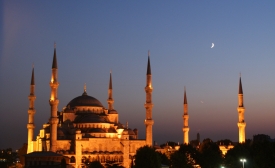syrian refugees
Japan is a strong target for refugee criticism because of its modest engagement in social media and global communications. Typically, it doesn’t proactively make its case to the world, largely allowing the international press and the Twitterverse to frame its issues for it.
The congestion at Keleti Station is just one of Europe’s latest blunders in the immigration crisis—a crisis that, although unprecedented, is not insurmountable. European leaders must focus on three action points: revising the Dublin Regulation, creating a fair and binding distribution of migrants, and enacting a Europe-wide public education campaign highlighting the necessity of this cooperation.

Senem Cevik offers Turkey a little PR advice.
Prime Minister David Cameron has promised that the UK will accept up to 20,000 more Syrian refugeesby 2020. To help fund this, Chancellor George Osborne says that money should be used from the foreign aid budget to provide support for local councils. He said there should be a "fundamental rethink" of how the aid budget is used.
When the Icelandic government announced it would accept 50 refugees, its citizens rallied, using a Facebook event page to volunteer their homes and pressure the government to grant more refugees asylum. On Sunday, award-winning author Bryndis Bjorgvinsdottir set up the pageSyria is Calling. The group aims to present Iceland's welfare minister Eygló Harðardóttir a list of volunteers willing to house Syrian refugees.
In the past few years, Turkey has taken upwards of two million Syrian refugees into the country and provided large quantities of aid to them as well. Aid to Syrian refugees has increased the overall humanitarian aid Turkey gives each year and this spending is seemingly aimed at increasing Turkey’s soft power internationally, and regionally with the Middle East. Often we in Turkey hear ideas from major media outlets about supporting the Middle East based on shared culture and religion, or a shared historical Ottoman legacy.
Fuat Oktay, the president of Turkey's Prime Ministry Disaster and Emergency Management Authority (AFAD) remarked that AFAD is engaging in humanitarian aid by hosting Syrian refugees and that AFAD's accomplishments until now are beyond its mission.
U.S. Vice President Joe Biden has announced nearly $135 million in humanitarian aid to help feed civilians affected by Syria's war. Speaking in Istanbul on Saturday, Biden said the money will raise the amount of aid the U.S. has provided to more than $3 billion since Syria's crisis began.







